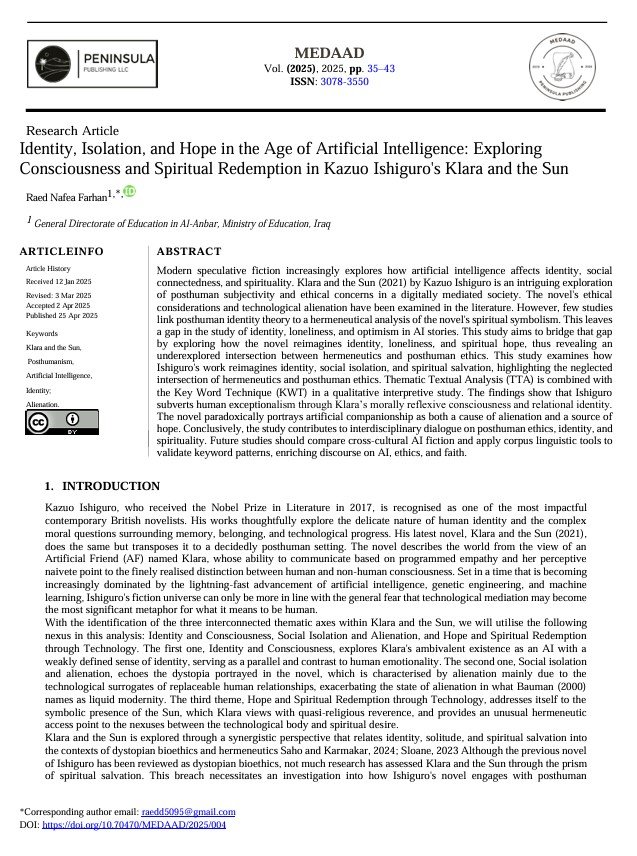Identity, Isolation, and Hope in the Age of Artificial Intelligence: Exploring Consciousness and Spiritual Redemption in Kazuo Ishiguro's Klara and the Sun
Main Article Content
Abstract
Modern speculative fiction increasingly explores how artificial intelligence affects identity, social connectedness, and spirituality. Klara and the Sun (2021) by Kazuo Ishiguro is an intriguing exploration of posthuman subjectivity and ethical concerns in a digitally mediated society. The novel's ethical considerations and technological alienation have been examined in the literature. However, few studies link posthuman identity theory to a hermeneutical analysis of the novel's spiritual symbolism. This leaves a gap in the study of identity, loneliness, and optimism in AI stories. This study aims to bridge that gap by exploring how the novel reimagines identity, loneliness, and spiritual hope, thus revealing an underexplored intersection between hermeneutics and posthuman ethics. This study examines how Ishiguro's work reimagines identity, social isolation, and spiritual salvation, highlighting the neglected intersection of hermeneutics and posthuman ethics. Thematic Textual Analysis (TTA) is combined with the Key Word Technique (KWT) in a qualitative interpretive study. The findings show that Ishiguro subverts human exceptionalism through Klara’s morally reflexive consciousness and relational identity. The novel paradoxically portrays artificial companionship as both a cause of alienation and a source of hope. Conclusively, the study contributes to interdisciplinary dialogue on posthuman ethics, identity, and spirituality. Future studies should compare cross-cultural AI fiction and apply corpus linguistic tools to validate keyword patterns, enriching discourse on AI, ethics, and faith.
Article Details

This work is licensed under a Creative Commons Attribution 4.0 International License.
